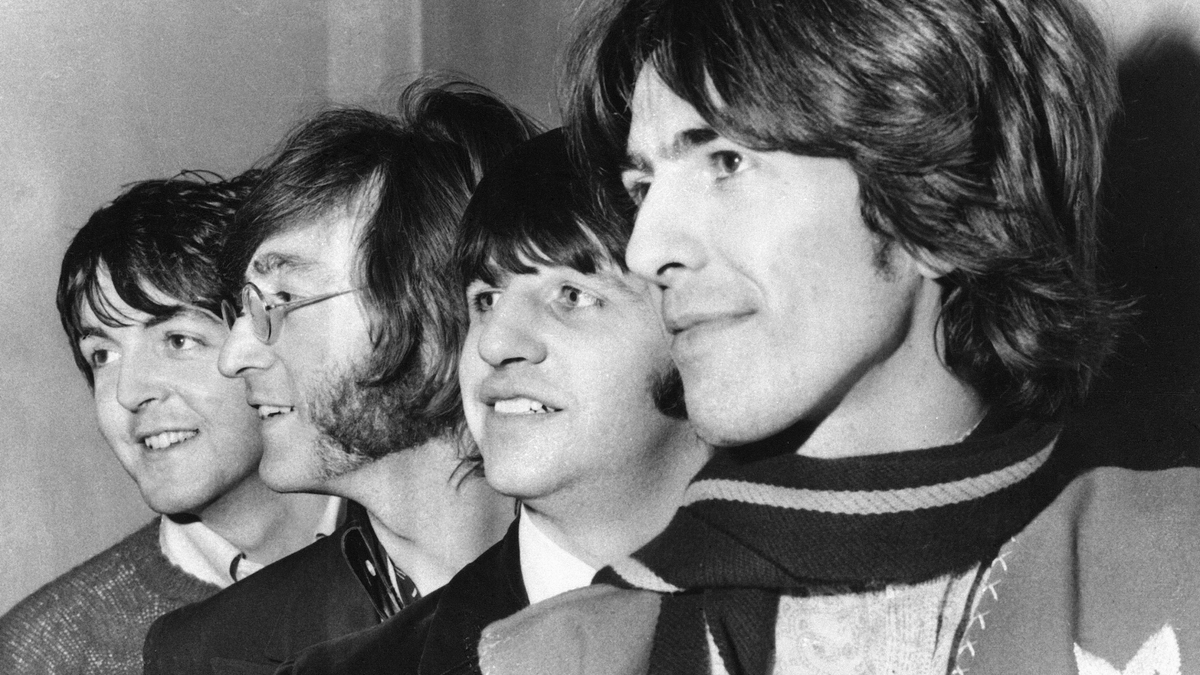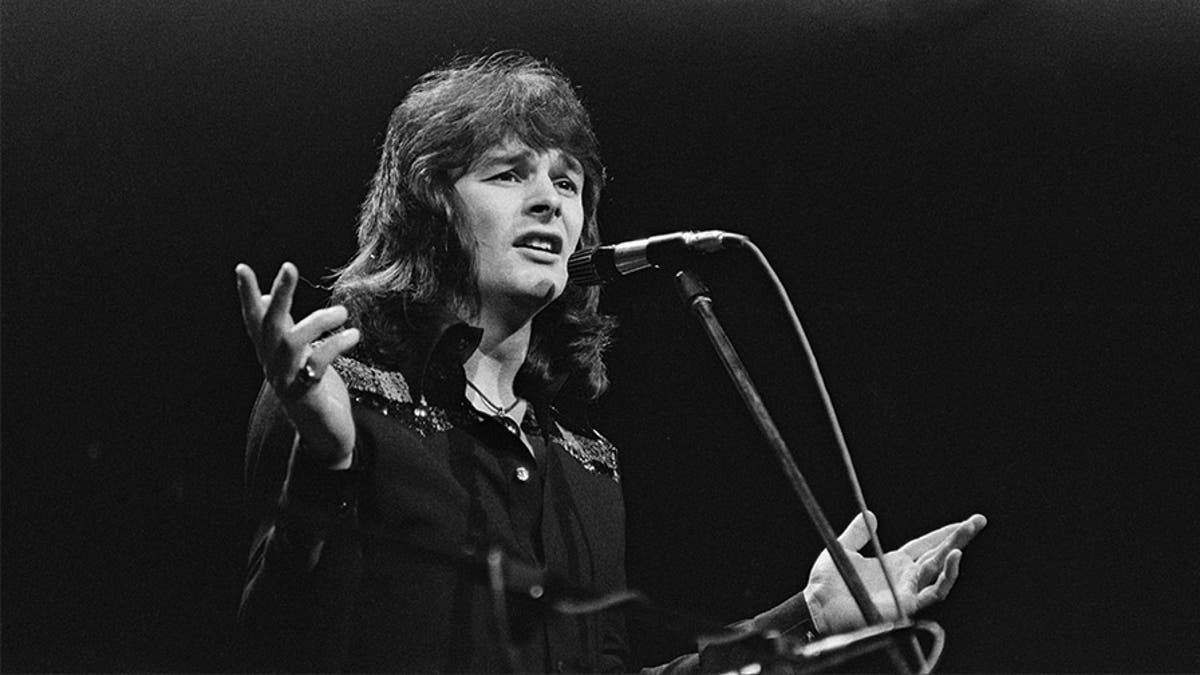The Zombies' Colin Blunstone reveals story behind 'Time of the Season,' band's early financial woes
The Zombies frontman Colin Blunstone shares his thoughts on the band's upcoming induction into the Rock and Roll Hall of Fame, the inspiration behind their hit song 'Time of the Season' and how the group survived being broke despite their success.
When it comes to The Zombies, slow and steady wins the race.
While the British Invasion group has been eligible to be inducted into the Rock and Roll Hall of Fame since 1989, they didn’t appear on the ballot until 2014. As Rolling Stone reported, it then took three more years until they finally got the honor in late 2018. But frontman Colin Blunstone isn’t feeling bitter about having to wait so long. In fact, he’s delighted that the ‘60s sensation continues to resonate with fans decades later.
JUDAS PRIEST SINGER TALKS SURVIVING CONTROVERSY
The Zombies will be inducted on March 29, 2019 — 50 years to the day from when “Time of the Season” rocketed to the charts in America.
The 73-year-old Blunstone spoke to Fox News about the induction, the inspiration behind “Time of the Season” and how the group survived being broke despite their success.
Fox News: How does it feel to be inducted after all this time?
Colin Blunstone: I was thrilled to be nominated. On the one hand, we had this wonderful, tenacious, and loyal fan base voting over a month for us. Then we get peer group acceptance from the members of The Rock Hall. It's an incredible thrill and at the moment, I kind of feel there's an element of validation in it. It makes you feel that maybe your life's work does have some kind of value and it's a very uplifting experience.
PAMELA DES BARRES RECALLS HER GROUPIE DAYS
Fox News: Where did the inspiration for ‘Time of the Season’ come from?
Blunstone: I didn't write the song but when Rod [Argent] tells a story, he actually misheard a lyric in a Smokey Robinson song that gave him that title. Still, he thought, ‘That's a great title for a song.’ It actually was the last song we recorded for the last Zombie album, which is called ‘Odessey and Oracle.' It was written right at the end.
We were in Abbey Road [Studios], which is very expensive, and we had a very limited recording budget. How we even managed to even record in there at all, I don't know because it's very expensive. We knew we were up against the clock. I always remember there was a clock right in front of me and we were running out of time. Rob was coaching me through the phrasing of ‘Time of the Season’ and I was getting hotter under the collar.
There were some quite heated exchanges between us and probably some quite colorful language as well. Which everyone in the control room could hear because I'm talking through the mic to Rod. The irony of the fact that I'm singing ‘it's the time of the season for loving’ whilst at the same time, having a verbal altercation with Rod about how the song should be sung. It always amused me because it did get fairly fiery for a few minutes. Once the song was recorded, it was all forgotten and we were old pals again. Just while the song was being recorded, things did get a little bit edgy. But it seemed to work and people liked the song.
GLENN MILLER'S DOOMED PLANE FOUND?
Fox News: The band broke up before ‘Odessey and Oracle’ came out in 1968. What happened?
Blunstone: We've been three years on the road and we were managed very poorly, which meant that we never earned any money. When I say we didn't earn any money, I mean we had no money at all. Particularly the non-writers. The writers, Rod and Chris White, their income came from a completely different setup. There was an independent company that was paying them their writer’s royalties. So, it wasn't a problem for them but for the other three guys, Hugh Grundy, Paul Atkinson, and myself, we were absolutely broke. On top of that, because we were so poorly managed, everything was made so difficult for us. Really hard work and draining. I think we were all completely drained and just exhausted after three years on the road.
I'll tell you a classic — this happened just before we recorded ‘Odessey and Oracle.’ We were invited to go perform in the Philippines in Easter 1967. There was a very difficult time with The Beatles in the Philippines. It was said that they had turned down the opportunity to go for tea with the president of the Philippines. I think, actually, there was a misunderstanding and The Beatles left the Philippines in rather challenging circumstances. They were practically kicked out of the country. Who is the next British band to go in after this difficult time? It was us.
Fox News: How did The Zombies handled taking over after The Beatles?
Blunstone: I didn't know what to expect but I thought in my innocence that we would be playing in a hotel, somewhere in a holiday resort. I thought in the bar or something like that, maybe they would have a little function room and we could spend the day on the beach. Then in the evenings, we would play in some hotel or something like that. Well, we arrived and we opened at the coliseum. At the time, it was the second largest coliseum in the world and we opened to 28,000 people. This is the kind of thing our management company did. We were totally unprepared and on top of that, we were being paid the princely sum of 80 pounds a night, between us.
JOHN LENNON WAS 'ABSOLUTELY DEVASTATED' OF LOSING HIS MOTHER
So that meant, there was five in the band and we had a few percentages to pay off, but if you just want to split it five ways I was getting probably about 13 pounds. What would that be, about $10 or $11 a night, for playing to 28,000 people. We played there for 10 nights and I remember on a Saturday night it was 32,000 people and it went on for 10 nights. We had so many hits in the Philippines and we just didn't know.

This Feb. 28, 1968 file photo shows The Beatles, from left, Paul McCartney, John Lennon, Ringo Starr and George Harrison.
That was the last time we worked for that manager. I have no idea why we stayed with him. I guess we were young and naïve. That's just an example of the sort of things that happened to us time and time again. We came back from the Philippines and we were absolutely exhausted. The next few weeks we started recording this album, ‘Odessey and Oracle.’ A single was released in the U.K. and it got no airplay. We then thought it would be better if we went off and started new projects. It was an amicable split. We all just thought it was time to move on.
Fox News: And then ‘Time of the Season’ became a hit. How bizarre was that experience?
Blunstone: It was extremely bizarre. I was getting occasional phone calls that we were picking up airplay on this song. Tradition has it that one DJ and no one has ever known this guy's name, in Boise, Idaho, started playing ‘Time of the Season’ and he just wouldn't stop. It spread from Boise and eventually it spread around the country. There's a bizarre situation because I didn't think it was being promoted. It just happened. It's very weird. Then over the years, I think just through word of mouth, it became more and more popular. It sells more copies every year and it certainly sells far more copies now that it ever did when it first came out. It just mystifies me.
CLICK HERE FOR THE FOX NEWS APP
Fox News: The band wasn’t tempted to get back together and enjoy the song’s success?
Blunstone: Absolutely not. It was never, ever discussed. I know that Rod and Chris have gotten involved in their new band, Argent, which actually went on to be very successful. Within a year, I had a hit song in the U.K. as a solo artist. So, we were kind of committed to other projects, to be honest.
Fox News: How difficult was it for you to launch a solo career?
Blunstone: I thought my career in the music business was over. I personally was devastated when the band finished and I couldn't envisage me staying in the music business. It wasn't until ‘Time of the Season’ was a hit in America that I started getting people approaching me to make records again. I made a few records, a few singles. Three singles actually before one of them was a hit in the U.K. Then I had a conversation with Chris White, the original bass player, and they'd formed a production company and he said ‘Why don't you record with Rod and me?’

Singer Colin Blunstone performing live on stage at the Rainbow Theatre in London on 10th February 1972. — Getty
So, my first two solo albums, it was almost like The Zombies under another name really, because it was myself, Rod Argent and Chris White. They were in the producer chair and I was doing the singing. I think it made the transition comparatively easy because I was very much working among friends and it was a very enjoyable experience. Now I tour with my solo band as well as with The Zombies. After all these years, I find it comparatively simple to change from one band to the other.
Fox News: Do you feel it’s taken a long time for the band’s work to be appreciated by the music industry?
Blunstone: That's an interesting question… The original incarnation of the band happened in the ‘60s, although I kept working with two of the members of the band, Rod and Chris. Over the years I've worked with them regularly on one project or another. So it wasn't as if I hadn't seen them. But Rod and I actually got back together again — we're now questioning what date it was but I think it was 1999. So there'd been a huge gap as far as touring was concerned. We worked in the studio quite a lot together and we played occasional charity gigs. We hadn't toured and we got together in 1999 just to do six dates and we enjoyed it so much.
We... just didn't realize that there was such worldwide interest in The Zombies. It got to the point that we had a long talk with the other surviving original members and said, ‘It seems we're being sort of driven towards using the name The Zombies again. How do you feel?’ They gave us their blessing. From then on we were The Zombies again but it was never, ever our intention to reform The Zombies in the first place. It’s just how things worked out.
Fox News: What has kept everyone going?
Blunstone: I just think we love music, be it writing, recording or performing. We all love to play. We're approaching the autumn of our careers. Simply, we do it because we love it. Although I think, especially for singers, there might be a limit on the time that singers can perform at a level that they're satisfied with. There may come a time when physically, we think it's possibly better that we slow down, to the point to where maybe we'd even retire, but that's somewhere off yet. I think it will be very much a physical decision because we love to play and I think we'll play as long as we're physically strong enough to do it.














































